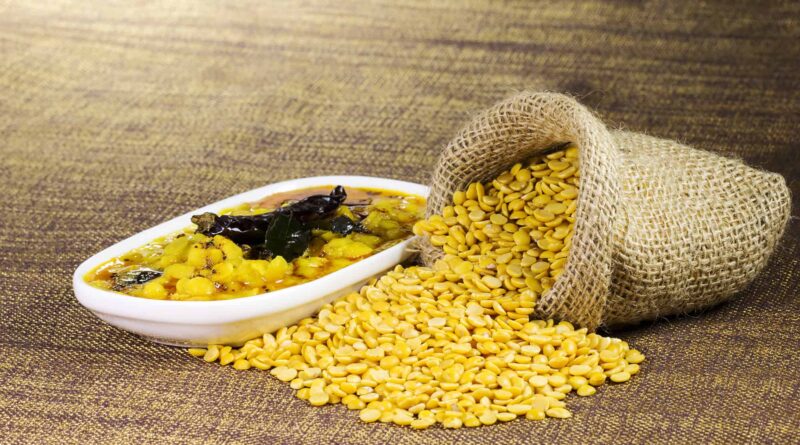Tur inflation to stay elevated: Trade
By Sandip Das
Tur dal prices are expected to be at elevated levels in the next couple of months because of low stocks, decline in kharif sowing and sluggish imports, traders said. The modal retail prices of tur according to the department of consumer affairs rose by 45% to Rs 160/kg on Monday compared to prices in the beginning of the year. However across several centres the retail prices have crossed Rs 170/kg.
Mandi prices of tur at Latur, Maharashtra is currently ruling around Rs 11,500/ quintal, highest since 2016 against the Minimum Support Price of Rs 7000 quintal for 2023-24 season (July-June).
“Stocks held with traders and farmers’ cooperative Nafed has been running low and imports from Africa (Mozambique and Malawi) are expected to enter the market only by next month,” a Maharashtra based trader of pulses told FE.
He also stated that prices are expected to rise further next month as demand picks up while domestic harvests are expected to low because of deficient rains and lesser kharif area. Around 0.1 million tonne (MT) of tur dal is expected to be supplied monthly till December which would not be sufficient to cool down the prices.
Retail inflation in tur dal in August, 2023 rose to 32.2% on year pushing inflation in pulses category to 13.4%. According to the agriculture ministry, the sowing has been down by 5.6% at 4.3 million hectare (MH) this year and harvesting of the crop is expected by November.
Monsoon rainfall in Maharashtra and Karnataka, which contribute about 65% of the country’s tur production, have been deficient by 9% and 19% respectively against the benchmark-long period average till Monday.
To curb hoarding and speculation amid rising prices, the government in May had imposed limits on the stocks of tur and urad dal till October 31.
The agriculture ministry has estimated a 18% fall in output of tur for 2022-23 crop year (July-June) at 3.43 MT compared to 4.22 MT in the previous crop year. It has around 16% share in the country’s pulses production of 27.75 MT in 2022-23.
However, the trade sources have pegged the output of tur at around 3.5 MT for the year because unseasonal rains in October last year had adversely impacted standing crops in the key producing state of Maharashtra.
The country imported 0.84 MT and 0.89 MT of tur respectively in FY22 and FY23. Under the bilateral agreement signed in 2021, India has committed to import 0.25 MT urad and 0.1 MT tur annually from Myanmar between 2021-22 and 2025-26. India has imports commitments of 0.05 MT tur annually from Malawi till 2025.
India signed an MoU with Mozambique for import of 0.2 MT of tur annually for five years when the retail prices of tur skyrocketed to Rs 200 a kg in 2016. This MoU was extended for another five years in September 2021. Imports from all the three least developed countries are exempted from import duties.
This article has been republished from The Financial Express

